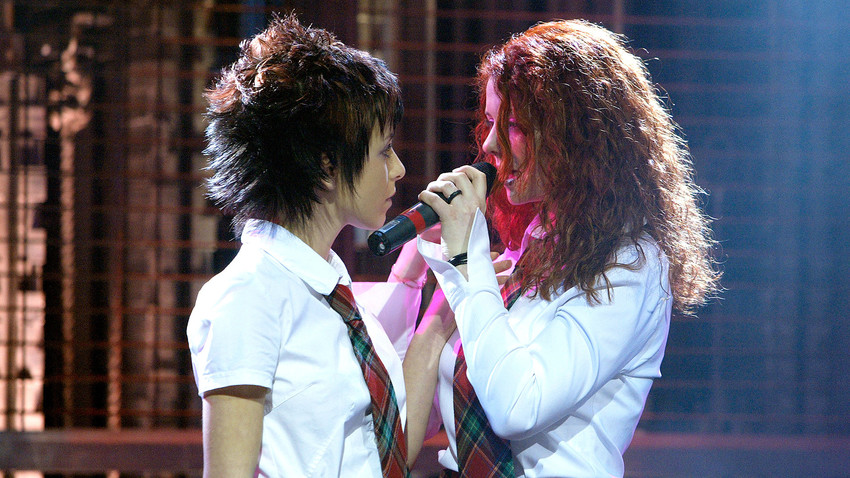
Julia Volkova and Lena Katina of t.A.T.u.
Getty ImagesArguably, the most famous Russian song is Kalinka. It’s often used in movies when the action switches to Russia, or when Russian characters enter the scene - similar to the way the Eiffel Tower is sometimes shown when a film touches on a French theme.
Kalinka was composed by folklorist Ivan Larionov more than 150 years ago, back in 1860.
Like Kalinka, Kazachok (Little Cossack) is also a fine backdrop to anything Russian: bears, bandits, fur hats, vodka...
The song, with its unsophisticated rhythm, was composed by Bulgarian singer Boris Rubashkin after he defected to the West. It soon became popular and he also choreographed a dance for Kazachok. Despite the number’s Bulgarian origin, it is considered to be a typical Russian tune influenced by the Cossack dancing traditions.
Dorogoi Dlinnoyu (By the Long Road) was originally composed in Russia by Boris Fomin in the
Podmoskovnye Vechera (Moscow Nights) is one of the best known Russian songs abroad. Originally, it was called Leningrad Nights but the title was changed after it was used for a documentary.
At first, the song was not particularly popular but suddenly - and much to the surprise of those who wrote it - the USSR couldn’t get enough of it. Soon after it started making waves abroad when young American pianist Van Cliburn (who won the first International Tchaikovsky Piano Competition in Moscow in 1958) became a symbol of the thaw in Russian-American relations at the time.
Katyusha (a diminutive
Some believe its success is down to the fact that a famous Russian rocket launcher used by the military was also nicknamed Katyusha - the weapon played an important role in WWII.
The track All the Things She Said by t.A.T.u. was released in 2002 and is perhaps best known for its music video: the two female singers lock lips in the rain while wearing school uniforms.
The song reached number one in many countries and is the only Russian track to make the top 20 on the U.S. Billboard Hot 100.
Trololo made its mark on the music scene in 2009 largely thanks to YouTube. It was written back in 1976 and the vocals were belted out by Eduard Khil - fresh life was breathed into his celebrity status after his heyday pittered out more than 30 years before the song’s second wind.
If using any of Russia Beyond's content, partly or in full, always provide an active hyperlink to the original material.
Subscribe
to our newsletter!
Get the week's best stories straight to your inbox